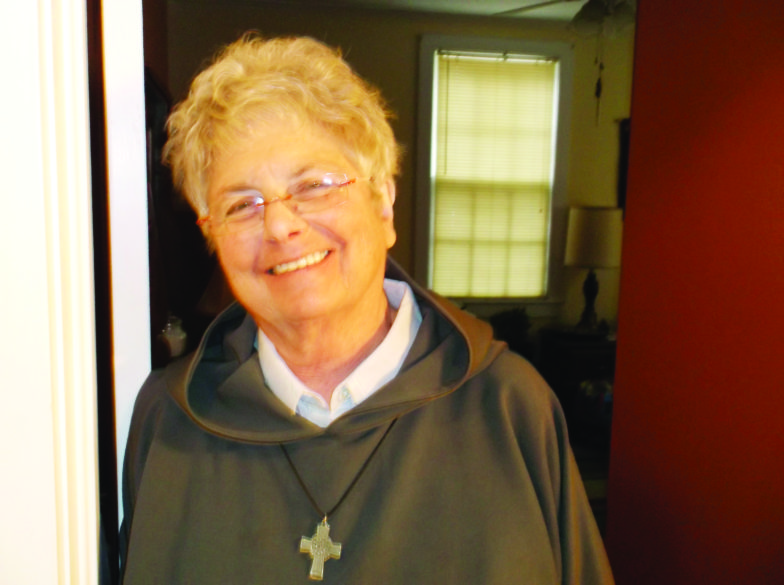
FROM THE HERMITAGE
By sister alies
“Not all who wander are lost.” I’m not sure who said that but it fits well into my life and perhaps yours. Deep in the psyche of each person is a wanderer, someone who travels, someone who is on the move. In our faith-life we also wander, partly as we mature and partly by circumstances bringing us great joy or difficulty!
Pilgrimage, wandering, on the road again is a very ancient image and is certainly formative in our Catholic Christian tradition. The Israelites wandered in the desert for 40 years over terrain taking only 11 days to walk! Monks or prisoners sitting in their cells wander many miles each day as they pray. Francis, Dominic and their mendicants wandered all over meeting the poor, never quite sure how they might make ends meet. Today a great number of sisters and brothers, refugees, wander from place to place, country to country, looking for a place of safety and welcome, a chance to start again.
Having just celebrated the feast of St. Teresa of Avila we might be reminded of other sorts of prayerful wandering … into ‘interior castles,’ ’mansions’ or ‘a palace where God dwells.’
What of repentance as a sort of wandering … since the word reminds us to ‘turn around?’ As we follow a path not set for us, God will intervene in one way or another to suggest that if we continue to go in that direction, things might not work out so well. Angelus Silesius in Cherubinic Wanderer, says on page 47: “Go where you cannot go; see what you cannot see; hear where there is no sound, you are where God does speak.” Mysterious and koan-like. The path of this wanderer would seem to be the exact opposite of what one might think is ‘right.’
Or another example, an anguished path when one is experiencing fear connected to death … how does one keep going and where is that going to? We might say quite easily, when we’re not afraid, that the path leads to heaven and we can by faith, hope it does. This path, sunk deep in our interior, has to be followed carefully and faithfully, looking at Jesus and not the fear. Remember the “devil prowls around …” (1 Peter 5:8).
“Death is our constant companion, and it is death that gives each person’s life its true meaning. But in order to see the real face of our death, we first have to know all of the anxieties and terrors that the simple mention of its name is able to evoke in any human being,” says Paulo Coelho in his book, The Pilgrimage. Imagine the winding path through Gethsemane … the path up to the Cross … the walk toward the tomb. Here is the human experience, an experience of diminishment or of apparent folly.
As the autumn falls around you, look around and see all the winding paths nearby. See the roads or the tiny traces through the under bush. Look for the flight patterns of the raptors or the few hummingbirds still around. As the leaves color and fall, one sees the mighty trees and the little paths into them, as squirrels and other little critters hide their goods for the winter. What have we put aside that will nourish us when our journey becomes difficult? What have we hidden deep in the recesses of our hearts that will help us when all seems lost? What actually matters? What gives meaning to life?
One of the classics that helps remind me of some answers to those questions is in the The Way of a Pilgrim, (translated by H. Nacovcin), a 19th century Russian work. The story is about a young Russian peasant-pilgrim with a deep question in his heart: how does one pray constantly? The text and the one that follows it, The Pilgrim Continues His Way, both challenge one to reflect on just how serious our pilgrimage is. Indeed, he travels a lot, has a spiritual father and discovers some answers. Father Walter Ciszek, S.J. wrote the forward of this edition and says: “The Pilgrim was most receptive to this valuable knowledge about prayer (the Jesus Prayer), for he had earnestly been searching for as method of prayer that would satisfy his longing for uninterrupted communion with God … he spared no effort …”
Here is the real answer … he spared no effort. If we want to discover that deep joy, establish a real faith life, live out of a hope carved in the soil of our hearts…then we must spare no effort. All who wander aren’t lost if the wandering is a search for the Living God … isn’t this the longing of every pilgrims’ heart?
